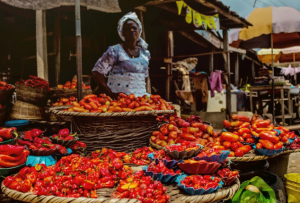
Headline inflation in Nigeria surged in June 2024, reflecting increased costs for essential commodities such as food, transportation, and energy. According to data from the Bureau of Statistics, inflation rose to 34.19% in June from 33.95% in May. This trend has significant implications for both the economy and the political landscape as policymakers grapple with the ongoing inflationary pressures.
Inflation Trends and Economic Impact
The increase in headline inflation underscores the persistent rise in consumer prices, which has been a critical concern for Nigerian households. The sharp rise in food prices has been a major driver of inflation, exacerbated by supply chain disruptions and import restrictions. Transportation and energy costs have also contributed significantly to the overall inflation rate.
Government Measures to Address Inflation
In response to the inflationary pressures, the Nigerian government announced the suspension of taxes and import duties on essential food items such as maize and wheat for 150 days. This measure, introduced a year after declaring a food emergency, aims to reduce food costs and alleviate some of the economic burdens on consumers. The government’s decision is expected to provide temporary relief and potentially ease the political pressure on the Central Bank of Nigeria (CBN) to adjust interest rates.
Interest Rates and Economic Growth
Despite government interventions, the month-on-month increase in inflation from May to June raises concerns about the potential need for further monetary policy adjustments. Nigerian billionaire Aliko Dangote emphasized that sustainable economic growth is unattainable with the current high interest rates, which stand at 30%. This sentiment is echoed by several government insiders who advocate for a reduction in interest rates to stimulate economic activity.
Central Bank’s Stance and Future Outlook
CBN Governor Cardoso, who has already implemented two interest rate hikes this year, faces mounting pressure to reconsider his stance. However, Cardoso remains firm in his approach, prioritizing inflation control over immediate rate cuts. The upcoming Monetary Policy Meeting (MPC) next week will be crucial in determining the future direction of Nigeria’s monetary policy and addressing the inflationary challenges.
Broader Implications and Expert Opinions
The inflationary trend in Nigeria is not an isolated phenomenon but reflects broader economic challenges. Analysts from Bloomberg and Financial Times highlight the interplay between global economic conditions and domestic policies. The suspension of food import duties is seen as a necessary but temporary measure that needs to be complemented by structural reforms to achieve long-term economic stability.
Conclusion
Nigeria’s rising inflation in June 2024 highlights the complex interplay between consumer prices, government policies, and monetary decisions. As policymakers prepare for the next MPC meeting, the focus will be on balancing inflation control with measures to support economic growth. The ongoing economic challenges underscore the need for a multifaceted approach to address inflation and ensure sustainable development.
